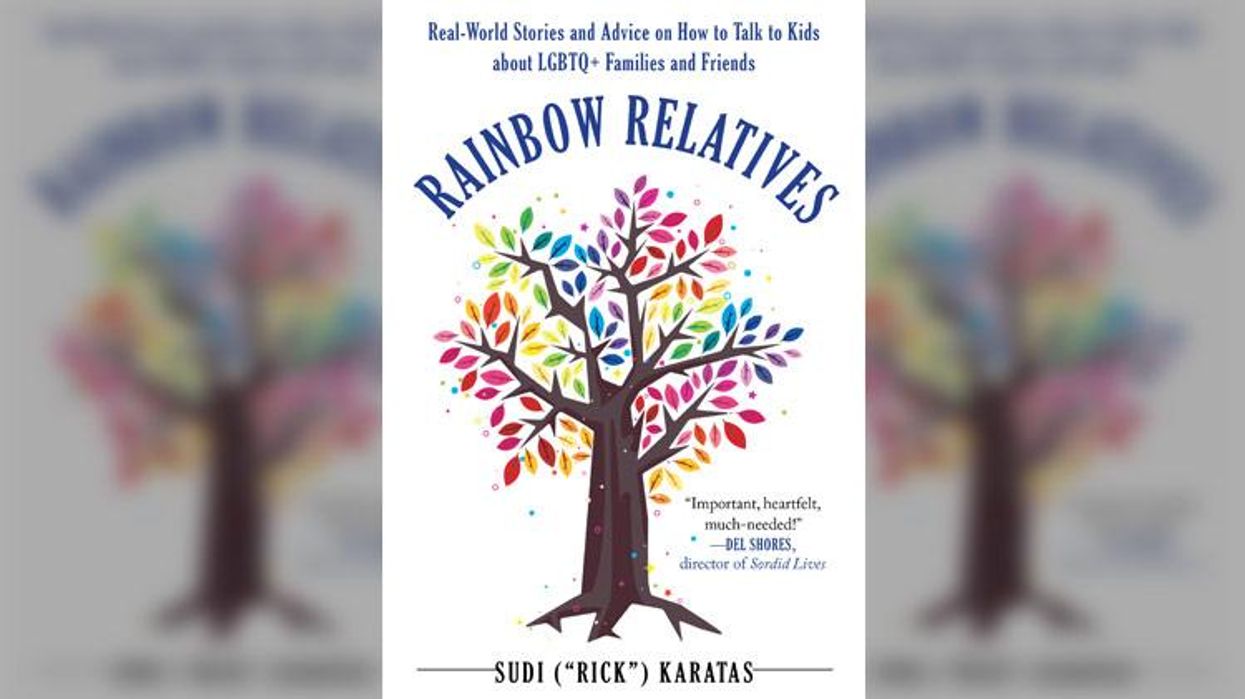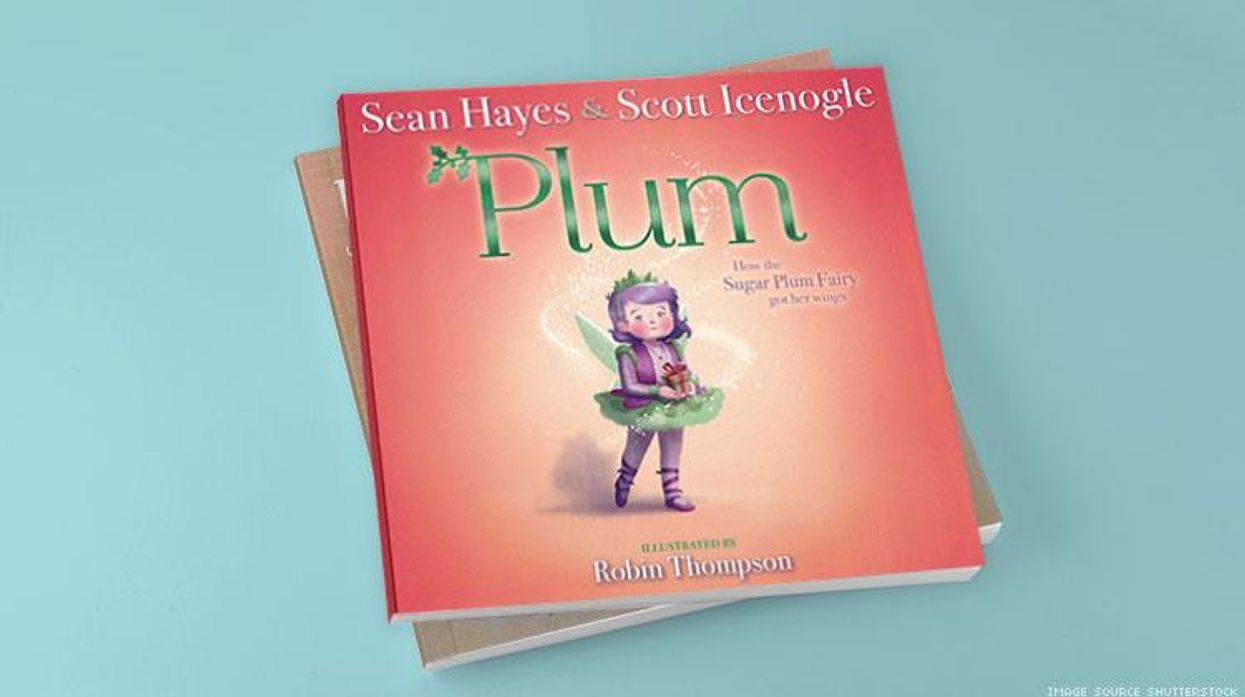In the spring of 1987, as the Midwest was thawing out, Brent Brand, a cute gay teen -- or maybe bisexual, maybe even he didn't know yet -- from Vincennes, Ind., was found dead in a drainage ditch in nearby Illinois. It was more than a decade before Matthew Shepard was found tied to a fence, before the media made Shepard the ultimate symbol of the deadly violence of gay bashing.
But in the 1980s, things were different. "The antigay rhetoric being broadcast into American living rooms by televangelists like Jerry Falwell, Pat Robertson, and Jim Bakker -- their vitriol wrapped in religion only escalated with the onset of the national AIDS crisis," recalls J. Patrick Redmond, author of a new novel set in that era, Some Go Hungry. He, like Brand, was a teenager at that time. "I remember clearly [hearing about] 'gay cancer' and the press surrounding Rock Hudson and the Reagans, how Ron and Nancy refused to help Rock and the tens of thousands of men just like him."
The thing is, every small town has a Brent Brand. Maybe they aren't killed. Perhaps they were just beaten badly, were harassed to suicide, or just vanished. It's difficult to find a little rural town without some gossip about a Smear the Queer game that got out of hand, or about the homosexual who was "taught a lesson," came home black-and-blue and never spoke about it, or mysteriously disappeared.
My Idaho hometown had a Jamie (not his real name). I didn't understand the gossip about him until I was older and out myself. He was a wonderful piano player who was different. He was friends with all of the girls and was, according to one of his classmates, just like one of them. After his graduation in the 1960s -- about a decade after the "Boys of Boise" episode, one of the country's most infamous antigay witch hunts -- he was beaten so badly in a public bathroom that he never played again. I was told the story many times, in whispered tones, and can no longer recall if he was killed that day or if it was just his soul that was murdered. Either way, he probably knew what Brent Brand and Matthew Shepard felt in their final moments. The story scared the hell out of me.
Brand's death led Indiana police to question dozens of the region's gay men as suspects, resulting in the state's largest gay witch hunt. Redmond was terrified, and not just because of the roundup of gays: he and Brand were actually classmates.
"It was a frightening time for a 17-year-old like me," he says. "At the time of his death, I myself had just had my first same-sex experience, and I wondered what in the hell would happen to me if people in town found out. The fear was overwhelming. I felt that should my secret get out I'd be beat up if not also murdered. I had to internalize all of these feelings. I became an incredibly skilled chameleon, in terms of my friends and what I allowed them to know about me. It colored my world and my coming-out process for years afterwards."
Redmond's new novel is part of the new Kaylie Jones imprint from Akashic Books, a small publisher known for some excellent queer tomes. Some Go Hungry is a fictionalized account of his coming of age in the 1980s, coming out (or rather, mostly staying in), and fulfilling family obligations in a small Indiana town rocked by the scandal of his murdered gay classmate. Based on the newspaper accounts of Brand's death (and the botched investigations that followed), through the lens of my own memories of 1980s America, it feels like a thinly veiled memoir more than pure fiction. But this is Redmond's story, not Brand's.
"Some Go Hungry is part roman a clef and part fiction," Redmond insists. "The story is inspired by my own experience of growing up in a small, rural community in southern Indiana, in my family's half-century-old restaurant."
And writing it, he says, "allowed me to forgive my hometown and myself. After Brent's death and the resulting scandal, I grew incredibly distrustful of my community. I loved my childhood and my hometown. I even loved my teen years in spite of the conflict with my sexuality. But still the residual distrust of my hometown lingers within me. Writing Some Go Hungry was healing for me. And I hope it helps others to heal too."
In 1987, The Advocate was the only national media outlet to cover Brand's death, in large part because of the resulting persecution of local gay men. "For several years after the crime," Redmond recalls, "Brent's mother tried desperately to get national news outlets to cover the story, to help her uncover the truth. Nothing ever came of her persistent efforts."
The Advocate reported that Steve Taylor, a 34-year-old gay restaurant manager, hosted a party for about a dozen other gay friends. Brand, only 18 at the time, wasn't on the invite list but begged to attend to see a guy named James "Father Jim" Leyendecker, who lived in nearby Kentucky, whom he had a crush on. The party was "uneventful," and when Taylor and his boyfriend went up to bed, they passed Leyendecker and Brand heading downstairs after having been in a bedroom alone together for a couple of hours. Later that night, Leyendecker returned to the party house and slept in an extra bed in Taylor's bedroom.
J. Patrick Redmond
Leyendecker told Taylor the next morning that Brand left at 2 a.m., but when Brand never showed up at home, Taylor told police, who searched for the teen to no avail. Two weeks later, Brand was found in a ditch in Illinois. Leyendecker, who reportedly had a drinking problem, later told police that he and Brand passed out, after talking (not having sex) for two hours, and when he awoke, Brand was dead. He panicked and drove a borrowed car across the state line, where he dumped Brand's lifeless body in a ditch in Lawrenceville, Ill., where it was found two weeks later, still fully clothed.
After a lengthy grand jury investigation, numerous summonses, and a wrongful-death suit against Leyendecker by Brand's mother, the case remains unsolved. Three autopsies could not determine the cause of death. Leyendecker pleaded guilty and was given a two-year sentence for obstructing justice and a concurrent six-month sentence for illegally moving a body and failing to notify a coroner of a death. He was reportedly questioned in another teen's death years later, but another man was found guilty of that crime. (Coincidentally, the apartment where Brand's death allegedly took place was burned in an arson fire a few years later.)
Knox County prosecutor Jerry McGaughey told the local newspaper at the time that he was investigating "satanic, ritual homosexual practices peculiar to Knox County." Numerous gay men were fired from their jobs after being subpoenaed by the grand jury; others were harassed on the street.
Redmond, who moved back to Indiana not long ago, merely wanted to unpack his own life in print. But his book may stir up old ghosts.
"Many in this community would love to see the truth surrounding Brent Brand come to light," read one anonymous email, of the many, sent to Redmond. "You would be within your rights to petition Knox County Superior Court II to release the Grand jury transcripts. Additionally, I was a friend of George Lane. Mr. Lane was hired by Knox County Prosecutor Jerry McGaughey to help him investigate the Brent Brand murder after the local police were dragging their feet.... George Lane always told me he kept copies of the investigation that he and Jerry McGaughy conducted. Photos, police files, statements, grand jury testimony, the whole shebang. [His widow] may give these records to you. Like I said... many feel this wound will never heal until the truth is known."
Redmond says he would love the world to know the truth about what happened to Brand, but locals won't find it in his book -- because he doesn't know either.
"There are a few local people that think they know what Some Go Hungry is about, even though at this point they've not read the novel...'You're opening old wounds,' they say. What they really think and mean is that Some Go Hungry will paint the town as wicked and corrupt. Thirty years later these same folks are still only thinking about themselves. Not about their community -- my hometown -- that found a local 18-year-old kid's dead body dumped in a farm field drainage ditch for wildlife and rodents to eat, and that the collective response seemed to be, 'Oh well, it's just a gay guy.' He went to a party rumored to be 'homosexual in nature' and 'he got what he deserved; the queers killed him.'"
Redmond says his father was recently confronted by a retired local police officer who told him, "You better tell that boy of yours to stop writing or someone is going to put a gun to his head." He adds, "Some of these same people -- and now their offspring -- want to make sure I know my place."
Though the novel has many wonderful and typically gay story lines -- the first boy crush, the straight boy who visits in the night, the lover who got away, finding yourself by leaving your hometown behind -- it is the murder-mystery narrative that transfixes.
Brand's death still stings. "Some folks just flat-out refuse to talk about it. It is one of the biggest scandals to rock the community," says Redmond. Local preachers "became opportunists. They used the crime as an example to warn their congregants of what happens when one 'chooses the wrong path' or 'disobeys the word of God.' No one knows for sure if Brent was gay. He didn't know himself. He didn't get the chance to know."
He thinks some locals should be recalcitrant.
"At the very least, I think the community owes Brent and his family a sincere public apology for their actions and rumor-mongering," he says. "The community, local pulpits, and regional media's behavior at the time practically destroyed an already grieving family."
He does believe at least one part of the gossip:
"The rumors are that some powerful city fathers were present at the party, that even after all these years there are still reputations that must be protected. I do believe that there was foul play and that there were indeed men in powerful positions involved -- that reputations were more important than the death of an 18-year-old kid."


















